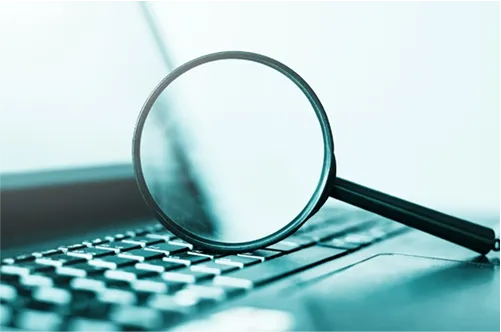Why You Shouldn’t Buy a Tax Lien Without Seeing the Property First
Main Points
One of the most common mistakes new investors make is assuming that every tax lien is a good deal simply because it’s available. They see a lien for a few hundred dollars, get excited, and buy it without asking the most important question: What property is this lien actually tied to?
Although we don’t invest in liens to pursue property acquisition, it is still critical to conduct thorough due diligence on the underlying property. If you don’t confirm what you’re investing in, you could end up with a property that drains your wallet instead of builds your wealth.
You shouldn’t buy a tax lien without seeing the property first because the lien could be tied to worthless or problematic real estate, and proper research is the only way to protect your investment.
Even though tax liens aren’t designed for property acquisition, you still need to know what you’re investing in. Understanding this process early also helps prepare you for tax deed investing, where the same research skills can lead to owning valuable real estate at deep discounts.
In this article, we’ll take a closer look at why thorough research is essential before purchasing tax liens, and how understanding tax deeds can turn that research into powerful opportunities for acquiring real property at deep discounts.

If the Owner Doesn’t Redeem, You Could Take Over the Property
When you buy a tax lien certificate, most of the time, the property owner will redeem. This means that they’ll pay off their back taxes plus interest, and that is how you get your fixed, secured return.
In rare cases, however, the owner doesn’t redeem. If the lien remains unpaid after the state’s redemption period, you have the right to commence foreclosure and take ownership of the property.
If you haven’t confirmed the property’s current condition, you could be stuck with:
A burned-out house that costs more to tear down than it’s worth
A piece of land with no road access
A condemned building that carries expensive code violations
Or worse, a property that has already been demolished and is now dirt
What looks like a “cheap lien” can quickly turn into a costly mistake if you aren’t prepared for the possibility of owning the property.
Always Confirm the Parcel Number
Every lien is attached to a parcel number. This is the most reliable way to confirm exactly which property your money is tied to. Addresses can be misleading or incomplete, but the parcel number is unique to each piece of real estate.
By researching the parcel number, you can find out if the property is:
A single-family home in a neighborhood
A vacant lot in a remote area
A small, landlocked strip with no legal access
Or even unusable land like swampland or drainage ditches
Far too many beginners skip this step and end up surprised to find out their lien wasn’t tied to a house at all. Always start with the parcel number.
Don’t Rely on Google Maps Alone
Google Maps and other online tools are helpful, but they can be misleading. Satellite and street view images are often outdated, sometimes by years.
That house you see online may have already been condemned and torn down. The land that looks buildable from the sky might be zoned for non-residential use. Even neighborhoods can change quickly, and what looked fine online may have very different conditions today.
That’s why we emphasize cross-checking everything. Review county records, check the property appraiser’s office, and whenever possible, arrange for a drive-by inspection.
Research gives you clarity, and clarity keeps you safe.

Research Protects You From Costly Mistakes
At the end of the day, investing in tax liens isn’t about buying a piece of paper; it’s about attaching your money to real property. If you don’t know the details of that property, you’re essentially gambling.
Proper research is what separates winning investors from beginners who make costly mistakes. It ensures you know exactly what you’re getting into, whether the lien redeems or not. And it positions you to take advantage of opportunities that most investors overlook.
And when you pair that same research with tax deed investing, you gain an even greater advantage. The same skills that help you evaluate liens also prepare you to identify and acquire valuable tax deed properties.
Here at USTLA, we help clients acquire tax deed properties for as little as the amount of back taxes owed. By mastering research early, you position yourself to transition seamlessly from earning secured interest to owning real property and building lasting wealth.
How to Acquire Real Property At Deep Discounts
The real opportunity for wealth building begins with tax deeds. Unlike tax liens, which earn interest, tax deeds allow you to acquire physical properties. With the proper research and strategy, investors can uncover valuable real estate that others overlook, turning small investments into significant cash flow and long-term wealth.
Here at USTLA, we don’t just teach you how to earn interest; we show you how to acquire deeply discounted properties safely and profitably through our proprietary “Get the Property" strategies. These systems are designed to help you avoid the traps that take down beginners and instead position you to purchase valuable real estate.
If you’re ready to learn the truth about tax lien and tax deed investing and discover how to secure valuable properties at massive discounts, start with our Free 3-Module Online Video Crash Course today.
USTLA's FREE Comprehensive
3-Module Tax Lien Investment
Online Crash Crouse
The ultimate beginner's guide to successful tax lien
certificate & tax deed investing.
Start Learning from the Comfort of Your Home Today
Featured Lessons
Vital Information Beginner’s MUST KNOW FIRST so you can Get Started Right

Lesson #1
What is Tax Lien Investing & How Can it Help You Achieve Financial Freedom

Lesson #2
How to Acquire Properties for the Back Taxes & Penalties Only

Lesson #3
How Much Investment Capital is Needed to Get Started?
As with all investments, there is always an element of risk. Even if the interest rates are written into state government law, mandated by state government law, and are regulated by state government law, there is a chance of you losing part or all of your investment. You must always try to get the best education and practice safe investing, no matter which investment vehicle you choose.

